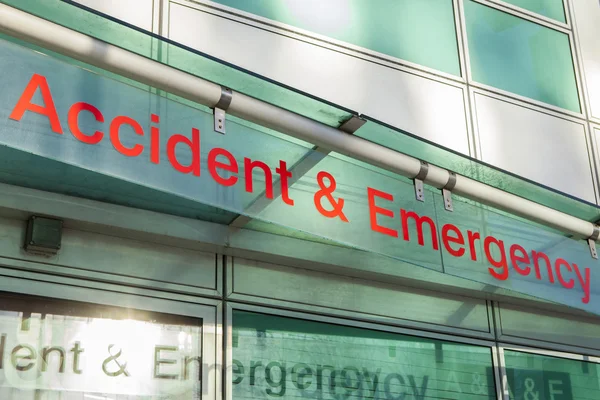19 May 2022
‘Protect the NHS’
It needs reforming, not protecting
by Lynda Goetz

There have been a couple more headline-grabbing bits of news about the NHS this week. Neither of them increase confidence in the ability of this monstrous consumer of taxpayer funds to provide the service the people of this country need. Firstly we had another report by Policy Exchange, ostensibly about specialised services within the NHS; it highlighted facts which are undoubtedly shocking. It seems that NHS bureaucracy has doubled since the pandemic, despite very little change in the number of frontline workers. Secondly, official figures show that half of new nurses are coming from overseas with senior nurses questioning the ethics of such dependence on other countries’ nurses.
The problem of depending on overseas nurses is obvious. First, they may not stay, as indeed happened with many nurses from the EU, who have now returned home. Second, we are clearly depriving their home countries of their services, which in turn could, or more likely will, cause problems there. The question which needs asking is why is nursing in this country appealing to staff from overseas, when our own home-trained nurses and midwives are leaving in droves? When you know that two out of three overseas nurses are coming from India and the Philippines, the answer perhaps becomes self-evident. The fact that we seem unable to retain our own staff is nevertheless damning. The figures do provide some concern. Prior to the pandemic, just 5,524 overseas nurses joined the Nursing and Midwifery register in 2018/19. In the last year, 23,408 of the 48,436 people who joined the nursing and midwifery workforce have come from abroad. I do not think anyone is suggesting that foreign professionals are anything other than a boon, but the concerns are the effect that their employment here may have on their own countries’ health service and what might happen should a future pandemic or other global disruption result in a drop in foreign recruitment or even a mass exodus of those foreigners employed here.
So, why are we unable to train enough of our own nurses (and indeed doctors)? Part of the problem may be the cost to individuals these days of getting a degree. When nursing training was mainly done ‘on the job’, in the days of SENs and SRNs, there was no question of ending up with huge graduate debts. Once it became a degree subject, student nurses were able to access a fairly generous bursary scheme which provided up to £16,454 (with a minimum of £10,000). This scheme was scrapped in 2015, but replaced in 2020 with a new, less-generous scheme which gave all students nurses a bursary of £5,000. Apparently a new wave of undergraduates has been inspired to choose nursing as a career after recognising the dedication and skill of those who worked through the pandemic. Although many of those who did so have now left the profession, citing stress and exhaustion, it does seem that the government’s plan to increase the numbers of home-trained nurses is working to some extent. We may reach Mr Javid’s target of 50,000 nurses by 2024.
Unfortunately, according to the Policy Exchange report, the increase in current frontline nursing staff is a rather paltry seven percent (with many of them coming from abroad), whereas the number of officials working in the Department of Health and NHS England has more than doubled in two years with the number of senior officials rising by a shocking 125 percent. As outsiders we cannot know if all these people are necessary or useful or if the money which is being paid to them is resulting in improvements further down the NHS ‘food chain’. From the stories we are currently hearing, it is hard to feel that the expansion of this bureaucracy is likely to result in better outcomes.
Last November, General Sir Gordon Messenger accepted the potentially poisoned chalice of undertaking a review of leadership in the NHS. He has been appointed by the Health Secretary to stamp out ‘waste and wokery’* and ensure ‘every pound is well spent’. The total bill at the Government department and central body in charge of the NHS has doubled in the two years from February 2020 from £42 million to £83 million: this at a time when nearly six and a half million people are on waiting lists. It is hard not to wonder where all that money from the National Insurance increase imposed on workers is going to end up. Those fears are not allayed by concerns expressed by MPs when presented with Government plans to overhaul the NHS. These reforms apparently include the creation of 42 new roles, on salaries of up to £270,000 each, raising fears that the extra cash generated by the NI rise will be swallowed once again by management costs. It would seem this has already happened.
Upon his appointment, General Sir Gordon Messenger and Dame Linda Pollard wrote an ‘open letter to all those who work in health and social care’ , a simple and sensible letter designed to engage all those to whom it is addressed to submit their views on ‘how leadership and management, at every level, could be strengthened to ensure better outcomes – both for the public and for everyone who works in health and social care, regardless of your seniority or role’. This is a start, as is the Governments pledge to cull over 90,000 civil service jobs. Unfortunately, as is more and more apparent, the NHS needs some very radical re-thinking. This should probably include moving to some sort of insurance element; a move which unfortunately no government seems prepared to countenance, even though ‘our NHS’ far from being the envy of the world is a voracious monster that will, unless reformed, continue to swallow vast amounts of taxpayers’ money without providing the service which is needed by the people of this country. When will we reach the tipping point of realisation on this issue?
*It was revealed last month that a leading Scottish university was teaching midwifery students that biological men could get pregnant and trans men could give birth even if they have a penis.
tile photo:https://depositphotos.com/stock-photos/nhs.html


